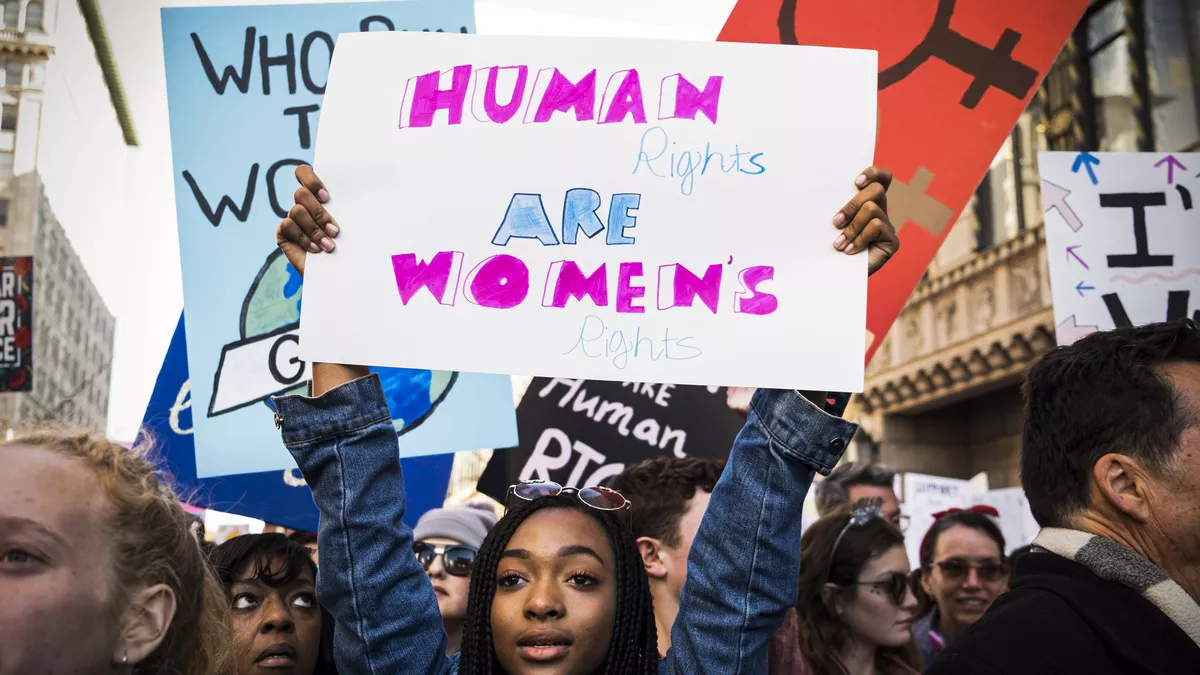Since its dawn, feminism as a phenomenon has had its journey, all the way from the late 19th century, when women in New York, started fighting for their legal rights with the suffrage to the present day #metoo movement. Feminism has come a long way, and as Virginia Woolf said, "all feelings of extremes are allied with madness". Feminism throughout these years has been one of the most celebrated, criticized, and yet widely misunderstood phenomena. But, before we delve deeper into the matter, for starters lets breakdown what feminism stands for, according to the Merriam Webster dictionary feminism stands for "the theory of the political, economic, and social equality of the sexes" the keyword here being "equality of the sexes". Considering feminism to be median to change society's power structure to favor women, or considering feminism to be directly associated with hate towards men are the two biggest misunderstandings about this phenomena. However, the said concepts of "feminists hate men" and "females trying to have a greater position in our society" are directly attributed, to the ideology of misandry. What is misandry? Misandry in the simplest terms is the man version of misogyny, (misogyny, sadly being a more eminent term). The Merriam Webster dictionary defines it as "hatred towards men" Misandry is a term that manifests, discrimination, denigration, and prejudice against men. Having evaluated the two definitions, we understand that misandry is not a radicalized expression of feminism and neither a concept that feminism promotes.

Now the question is why do people, occupy this misunderstanding in the first place? Why are misandry and feminism regarded to be alike? Considering how feminism evolved. The first wave of feminism during the late 19th centaury hits advocating the property and contractual rights of women, which later with the suffragette movement included the political rights of women as well. The second awakening during the 1960s moved its focus from the legal rights of women to issues of discrimination and promoting equal rights. According to Friedan's obituary in The New York Times, The Feminine Mystique "ignited the contemporary women's movement in 1963 and as a result, permanently transformed the social fabric of the United States and countries around the world" and "is widely regarded as one of the most influential nonfiction books of the 20th century." Feminism now became much more than a political movement. As times changed, feminism gained wide acclaim, all the way from Frida Kahlo's paintings to Emma Watson's UN speech and from the declaration of sentiments to the largest women's day march in 2017. However, when this movement intensified some rhetoric feminists, crossed the lines from attacks on sexism to attacks on men. As the Washington Post rightly said, 'This gender antagonism does nothing to advance the unfinished business of equality.'
The idea that patriarchy only exploits women, is misleading and responsible for men losing their trust in the movement as a whole. Contemporary feminism moves towards the consensus that men too are adversely weighed down by patriarchy. Societal standards for men are as toxic as those for women. For example, since birth men are taught to hide their emotions which have led innumerable men to turn to unhealthy coping mechanisms. Men make up about 10 to 38% of sexual assault victims but people barely address these issues.
Similarly, many such issues and the cult of masculinity has led to the high rate of suicide for men. Feminism however has been dealing with these issues; feminists and gender study scholars have been writing about the men's movement for decades. It can, therefore, be established that feminism talks about, and fights against the immense pain, isolation, and alienation felt by men.
Feminism is a diverse movement that encourages people to critically think about normalized behavior and their impact and holds people accountable for their conscious or subconscious sexist thinking. We have come a long way in terms of equal rights and opportunities, but the fight for equality will never stop.